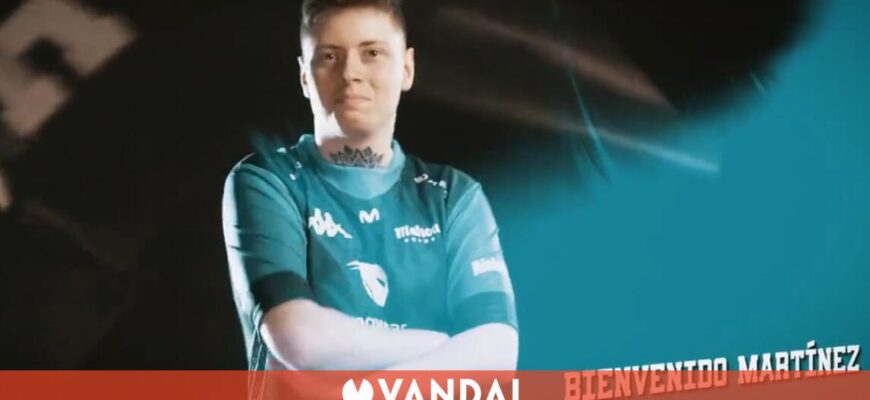The world of professional esports, a rapidly expanding global phenomenon, often mirrors traditional sports in its intensity, rivalries, and moments of high drama. Yet, it also grapples with unique challenges inherent to its digital-native culture, particularly concerning player conduct and the ever-shifting boundaries of acceptable competitive banter. A recent incident involving Antonio ‘MartinezSa’ Martinez of Gentle Mates and the formidable Mongolian squad, The MongolZ, at ESL Pro League Season 22, has once again brought these discussions to the forefront.
During a heated match, a moment captured on camera showed MartinezSa referring to The MongolZ as ‘Jackie Chan.’ While some might dismiss this as a lighthearted reference to a famous actor, the global esports community quickly recognized it as a racially charged remark, leveraging a common, often demeaning, stereotype against individuals of East Asian descent. The clip swiftly went viral, igniting a firestorm of criticism across social media platforms, with many fans questioning not only MartinezSa’s judgment but also the apparent lack of immediate intervention or condemnation from his teammates.
The Apology and Its Nuances
The controversy escalated, casting a shadow over the competitive spirit of ESL Pro League Season 22. In the wake of Gentle Mates` elimination from the tournament by The MongolZ, MartinezSa took to X (formerly Twitter) to issue an apology. He acknowledged his comments as “completely inappropriate” and “disrespectful,” attempting initially to contextualize his misstep through the lens of a “different culture” that might have hindered his awareness. However, he quickly – and commendably – retracted this defense, stating unequivocally, “But that’s not an excuse.”
His apology continued, affirming his “responsibility to educate myself and to do better” and his absolute condemnation of “any form of racism or discrimination.” He expressed deep regret to The MongolZ players, his teammates, and his organization, also accepting any potential sanctions. This comprehensive apology represented a significant step, signaling an understanding of the gravity of his words.
The response from The MongolZ was notably gracious, publicly stating that “no offence was taken.” While such a diplomatic stance is understandable from a professional team navigating a public controversy, it did little to quell the skepticism among a segment of the esports fanbase. Many questioned the sincerity of MartinezSa`s apology, viewing it as a reactive measure rather than a genuine change of heart. Others, more optimistically, saw it as a crucial “first step,” emphasizing the importance of future actions aligning with his declared commitment to self-improvement. Interestingly, some fans also urged for a swifter resolution, suggesting that esports, like traditional sports, often features “trash talk” as part of its competitive flavor, though a clear consensus emerged that MartinezSa had crossed a critical line.
Organizational Statements and the Enforcement Gap
Gentle Mates, MartinezSa`s organization, issued its own statement on X, labeling his comments as “unacceptable” and reiterating that such behavior was inconsistent with their brand values. The organization “condemn[ed] all racism,” yet conspicuously refrained from detailing any specific disciplinary actions or consequences for the player. This omission, much like the silence from ESL – the tournament organizer, despite the incident clearly violating its code of conduct – left many observers pondering the actual commitment to enforcing ethical standards beyond public statements.
Broader Implications for Esports Ethics
This incident is more than just a single player`s misstep; it`s a microcosm of a larger, ongoing debate within esports about the very nature of competitive interaction. Where is the line between aggressive, stimulating “trash talk” that fuels rivalries, and outright offensive language that fosters an unwelcome and discriminatory environment? As esports continues its rapid ascent into mainstream consciousness, attracting a diverse global audience and a multitude of players from varying backgrounds, the industry finds itself at a critical juncture.
The “different culture” defense, often invoked in such situations, serves as a stark reminder that ignorance is no longer a viable shield in a globally connected world. Players, like any public figures, bear a responsibility to understand and respect the cultural nuances of their diverse audience and opponents. Organizations and tournament organizers, in turn, face the challenge of not only establishing clear codes of conduct but also demonstrating a transparent and consistent commitment to their enforcement.
Ultimately, the MartinezSa incident offers a potent learning opportunity. It underscores the imperative for continuous education, heightened awareness, and robust accountability within professional esports. The industry`s journey towards fostering an inclusive, respectful, and genuinely meritocratic environment is ongoing, and incidents like this serve as uncomfortable, yet necessary, checkpoints on that path. The question remains: will the lines in the sand be clearly drawn and consistently upheld, or will they remain blurred, leaving room for repeated missteps? The global stage of esports demands clarity, not ambiguity, when it comes to fundamental principles of respect and fair play.








